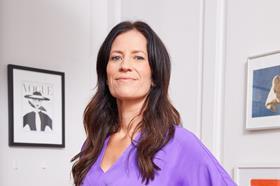

Despite the fact there has been some progress in the legal profession over the years to address gender equality, there’s still a long way to go. Women in UK firms still earn less than men*, are more likely to leave the profession than men, less likely to make partner than men and even less likely to get equity partnership. More needs to be done in order to retain, promote and support women in getting to the top, benefitting not just women themselves, but the teams they work in and the business in which they work.
In our view, the more women that get to partnership and equity level, or even run their own firm, the more role models there will be for junior women. If you can identify with a role model, it’s more likely that you can see also yourself in a leadership position and the path becomes clearer. Law firm leaders also need to encourage women to shout about their successes (as men often do) and take credit for their achievements.
A recent Credit Suisse Research Institute, Gender 3000 report reveals a positive correlation between increased gender diversity in leadership positions and superior returns on capital, ESG and stock performance. Companies with at least one woman on the board outperformed those without. Indeed, they outperformed by 26% on average in terms of share price performance.
Numerous studies add further positives. It seems accepted that gender balanced leadership comes with increased diversity in a workplace. A 2022 Harvard Business School study showed that job satisfaction is 86% higher for an employee who works for a wise and compassionate leader; metrics on which women score highly.
These studies are pretty clear – women are great at the top. But how do we get more women there, especially in the legal profession, and more importantly how do we get them to stay there? Women make up over half of the profession, yet only 35% are partners, and a tiny fraction of those female partners (25%) obtain equity.
As industry leaders, we also need to address the importance of flexibility and accountability. Female lawyers often have a high level of personal and professional accountability. If they are provided with the freedom to work to expected deadlines and targets, with good periods of notice, they are likely to succeed. If we accept that often females have caring responsibilities outside of the office which means they juggle multiple responsibilities (some of which are time constrained, like bath time), we should learn to discuss their optimal working hours, task women in advance and provide significant flexibility in terms of working hours. Law is a difficult and time-consuming business but we need to set women up for success within this business area by giving them freedom to self-determine a pathway to personal success.
In an attempt to improve gender parity at equity level in law firms, we set up Networking Nuance, an e-mentoring programme for female lawyers, to share advice and tips from the best in the business. How to bring work into a firm (and the importance of that for career progression) is not discussed often (or early!) enough. It’s also often forgotten that one needs to be 'seen'. The programme is unique in that it offers women at all levels instant and accessible advice, from women in law from a vast array of backgrounds and disciplines and who are already at the top of their game, as to how to succeed in the profession and how to become an expert ‘rainmaker’. It’s our aim to demystify the art of networking, provide support to each other, deal head on with the issues that women often face in the profession and drive up the number of female rainmakers in firms, making it much easier for them to demand equity in the long run.
* New research from the Next 100 Years and pay analytics company Gapsquare analysed hourly pay rates provided by law firms under the statutory gender pay reporting guidelines for 2022 which showed a gender pay gap of 25.4% – a figure that has remained largely unchanged since 2017, when mandatory reporting first came into effect for businesses with 250 staff or more.
The research echoes the findings of the Law Society that showed, on average, women in the largest law firms earn a fifth less than men, with the gender pay gap 50% wider than the average UK business.
Kate McMahon and Tamlyn Edmonds are co-founders of Networking Nuance, an e-mentoring tool to coach women to rainmaking success within law firms
































No comments yet